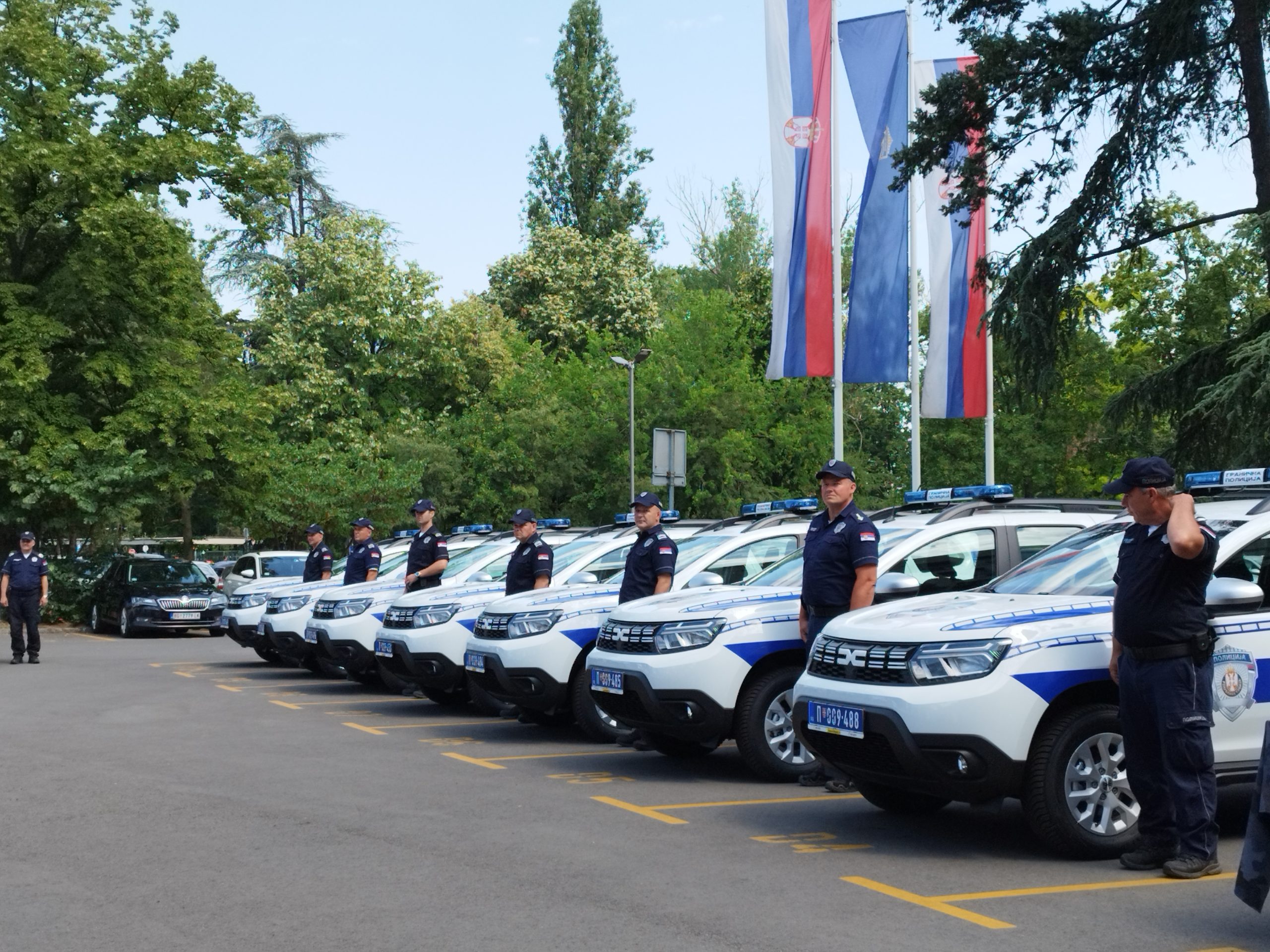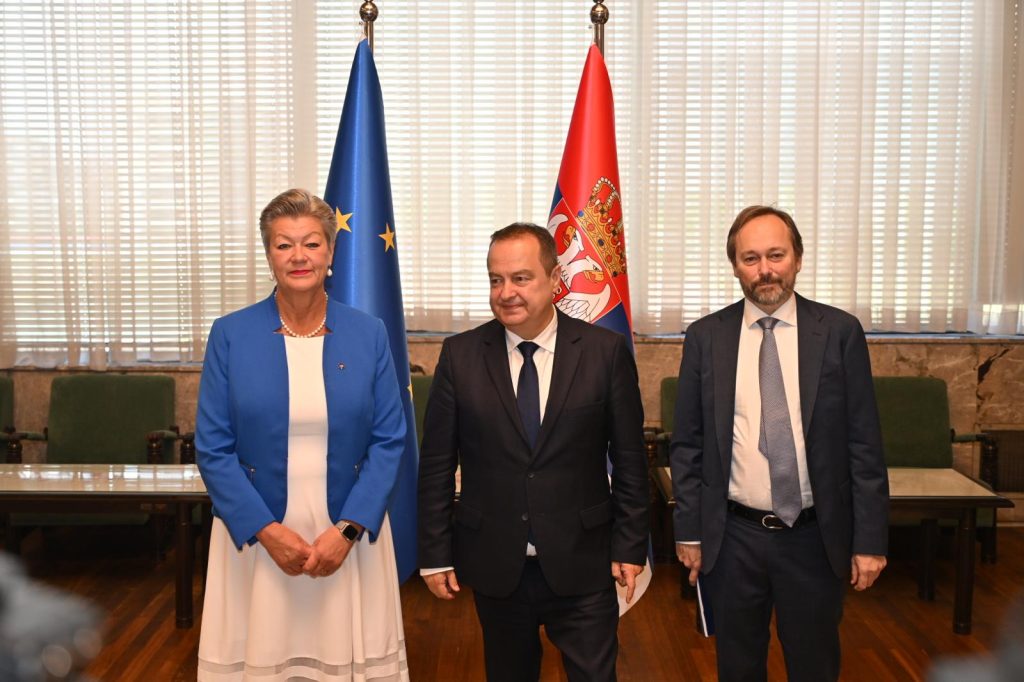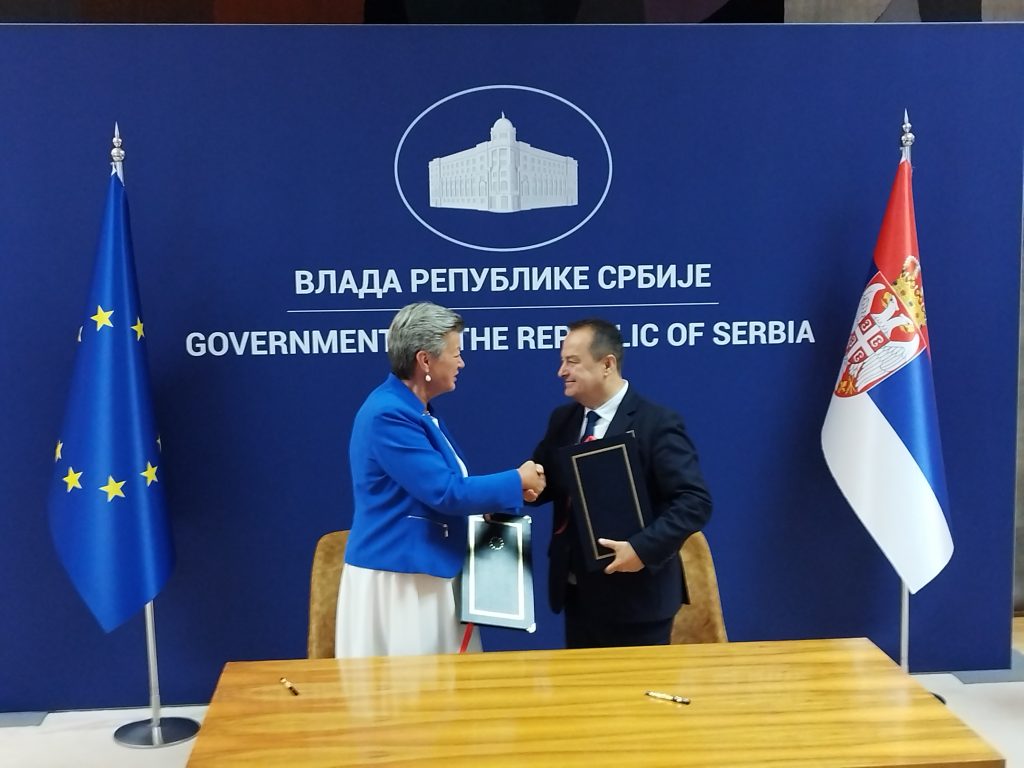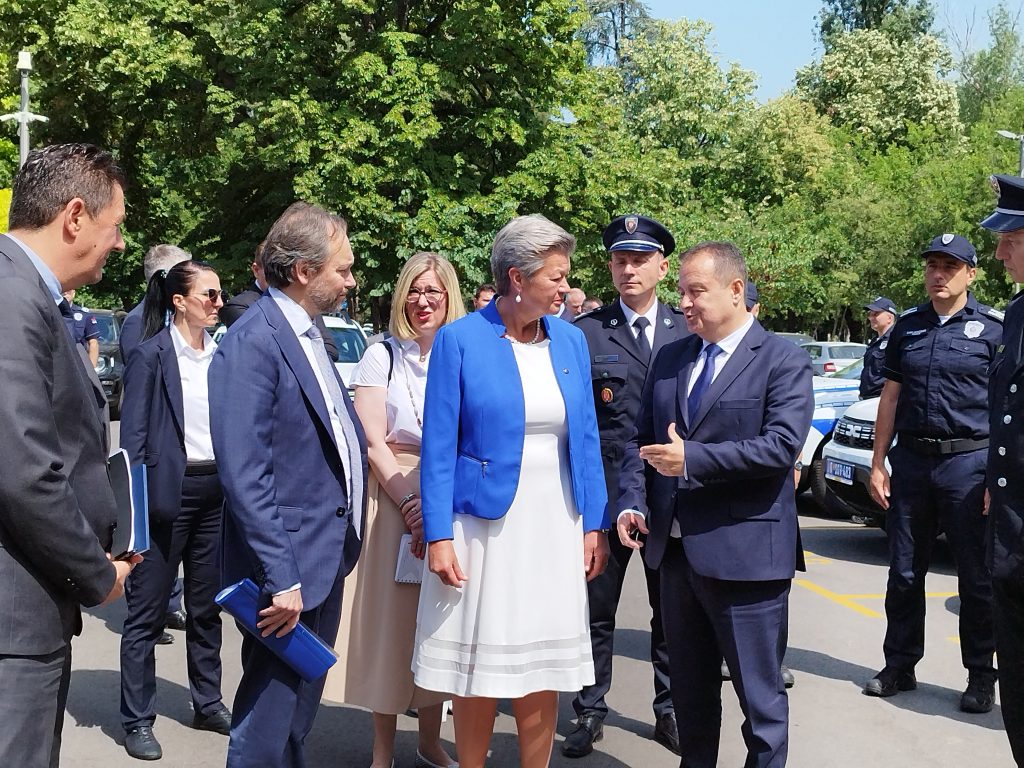Today, the European Union and Serbia signed an agreement on operational cooperation in border management with the European Border and Coast Guard Agency (Frontex). The Commissioner for Home Affairs, Ylva Johansson, together with the Serbian Deputy Prime Minister and Minister of Interior, Ivica Dačić, have signed the agreement in Belgrade, which will allow for increased cooperation between Frontex and Serbia. The signature finalises the negotiations that started in May 2023 and allows to update the current framework in application since May 2021.
This is another deliverable of the EU Action Plan on the Western Balkans presented by the Commission in December 2022. Reinforcing border management along the whole migration route is essential to reduce irregular arrivals, also considering the evolving modus operandi of smugglers, and the risks of firearms trafficking and organised crime. The agreement will allow Frontex to carry out joint operations and deploy the European Border and Coast Guard standing corps anywhere on the territory of Serbia, including its borders with neighbouring non-EU countries.
“Serbia is a key partner for the EU to manage migration along routes. This is the third time I have been to Serbia, twice I have witnessed the excellent cooperation at the EU border between Serbian border guards and Frontex colleagues against crime, migrant smugglers, and irregular migration. With the Frontex Status Agreement we sign today, we are upgrading our cooperation. Always under command of Serbian authorities, always at the initiative of Serbian authorities, Frontex will now also be able to support Serbian border guards and law enforcement at the borders with Bosnia Herzegovina and North Macedonia”, said Ylva Johansson, Commissioner for Home Affairs.
Frontex currently deploys over 480 officers in the Western Balkans, through joint operations at the Union’s external borders with Albania, North Macedonia, and Montenegro; this includes 111 officers already deployed in Serbia in an ongoing joint operation, conducted under the previous status agreement with Serbia, at the borders with Hungary and Bulgaria.
The strengthened operational cooperation provided by the agreement will contribute to addressing irregular migration and further enhance security in the region. Details of individual operations conducted on the basis of this status agreement will be agreed upon directly between Frontex and the national authorities of Serbia in an operational plan.
The European Union supports and will continue to support Serbia in managing migration. A very concrete expression of that support is the new agreement we are signing today. With this, Serbia and the EU are intensifying our cooperation on border management and expanding our ability to provide Frontex’s support to more borders”, said Margaritis Schinas, Vice-President for Promoting our European Way of Life.
Today’s new status agreement is the fifth agreement based on the reinforced mandate of Frontex. The first was signed with Moldova in March 2022, the second was signed with North Macedonia in October 2022, then Montenegro in May 2023, and Albania in September 2023. Negotiations with Bosnia and Herzegovina are ongoing.
Support, training, deployment of border officials and equipment has been delivered to the Western Balkan partners via the Instrument for Pre-accession Assistance (IPA) in coordination with Member States’ bilateral actions and based on the needs identified by the Western Balkans authorities.
In December 2022, the Commission presented an EU Action Plan on the Western Balkans. The implementation of the EU Action Plan Western Balkans is continuing, in close cooperation with partner countries and with positive results, contributing to the decrease of migratory pressure and secondary movements on the Western Balkans route. For instance, a Regional Operational Partnership on anti-smuggling with the Western Balkans was launched in November 2022 and was followed up by a EUR 36 million regional anti-smuggling programme in June 2023. By focusing on supporting law enforcement and judicial cooperation against criminal networks and drawing on EU funding and the know-how of EU agencies to increase border management capacity, the programme has already led to increased investigations, arrests and prosecutions.
Next steps
The entry into force of this agreement is subject to the consent of the European Parliament and the Council and the conclusion of the national ratification procedure in Serbia. Once the agreement enters into force, at the request of Serbia, Frontex Standing Corps can be deployed across Serbia, including at the non-EU borders.
For More Information
Frontex Status Agreement between the European Union and the Republic of Serbia







